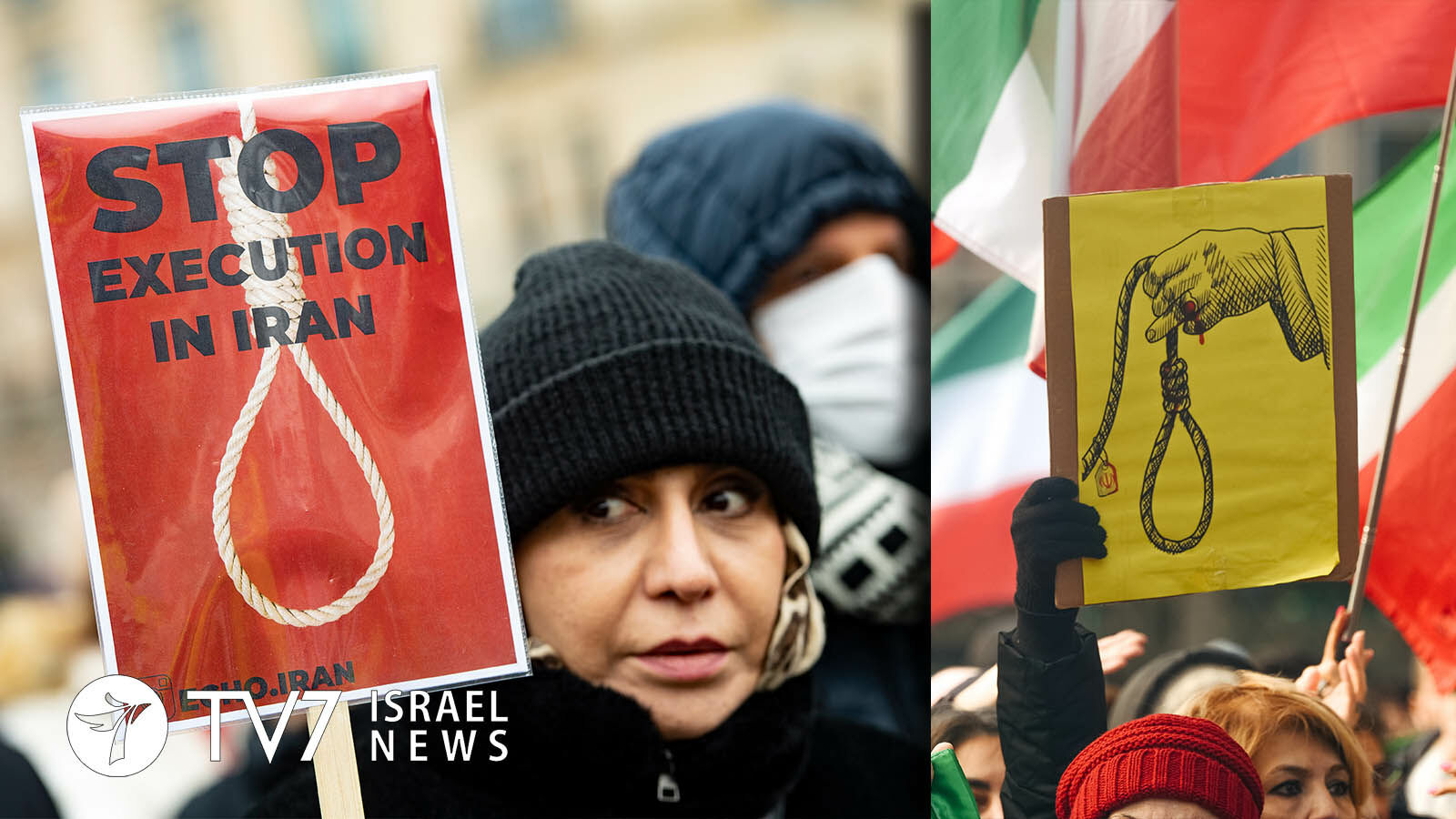The hanging of two men for allegedly killing a member of the security forces during nationwide protests in the Islamic Republic has drawn wide-spread condemnation from the European Union, the United States and other Western nations.
By Erin Viner
The latest executions bring to four the number of protesters officially known to have been executed so far as part of Iran’s brutal crackdown on mass protests against the country’s theocratic rule that have been ongoing since the 16 September death of 22-year-old Mahsa Amini in custody following her arrest by the so-called “morality police” for attire deemed insufficiently Islamic. Iranians from layers of society have taken to the streets in a popular revolt to express outrage over her killing and the suppression of human rights by clerical rulers in the country, with many calling for the ousting or deaths of Supreme Leader Ali Khamenei and President Ebrahim Raisi.
The protests that ensued represent one of the toughest challenges since the 1979 Islamic Revolution,
Mohammad Mehdi Karami, 22, and Seyyed Mohammad Hosseini, 39, were executed on Saturday following convictions of killing a member of the Basij paramilitary force militia. Three others have been sentenced to death in the same case, while 11 received prison sentences.
The public fury persists despite ultimatums issued by the Islamic Revolutionary Guards Corps (IRGC), which has crushed dissent in the past with the support of its volunteer Basij militia.
CNN has estimated that up to 40 people have been sentenced to death to date, although Iran has refused to provide an official count.
The Amnesty International human rights group last month denounced what it called “sham trials designed to intimidate protesters,” alleging that those condemned to death have been denied adequate defense including access to lawyers of their choosing.
Amnesty said Karami was convicted based on forced confessions. Hosseini’s lawyer Ali Sharifzadeh Ardakani also said his client’s confession had no legal basis as it was obtained by severe torture – including the application of electric shocks to his body and extensive beating.
Iranian authorities have denied the confessions are extracted under torture.
“Mohammad Mehdi Karami and Seyyed Mohammad Hosseini, principal perpetrators of the crime that led to the unjust martyrdom of Ruhollah Ajamian were hanged this morning,” the judiciary said in a statement carried by the official IRNA news agency.
“Israel strongly condemns these abhorrent murders,” Israeli Prime Minister Benjamin Netanyahu said at the start of the weekly Cabinet meeting, adding, “We salute the Iranian citizens who are heroically fighting for their freedom. They are sacrificing their lives for basic human rights.”
The executions “are revealing to the entire world the true face of the oppressive regime in Tehran, a regime that threatens its citizens, the countries in the region and the entire world.,” said the Israeli leader, underscoring, “I have been saying this for 20 years and today I am pleased that more and more people and governments around the world understand this.”
High Representative of the European Union Josep Borrell denounced the executions and called on Tehran to immediately cease carrying out death sentences against protestors and annul existing sentences.
“This is yet another sign of the Iranian authorities’ violent repression of civilian demonstrations,” said the EU’s top diplomat in a statement.
US Special Envoy to Iran Robert Malley also slammed the “sham trials” of the accused, and wrote on Twitter that, “These executions must stop.”
British Foreign Minister James Cleverly called on Iran to “immediately end the violence against its own people,” today issuing a statement that he has “summoned the Iranian Chargé d’Affaires to condemn in the strongest possible terms the abhorrent executions we witnessed over the weekend.”
Taking similar action, the Netherlands announced that Iran’s ambassador would also be summoned for the second time in a month to express its deep concerns over the execution of demonstrators, Foreign Minister Wopke Hoekstra said on Saturday. “Appalled by the horrible executions of demonstrators in Iran,”Amsterdam’s top diplomat wrote on Twitter, saying these actions underlined the need for the EU to impose stronger sanctions on the Islamic Republic than are currently being considered.
The French Foreign Ministry called the executions “revolting” and appealed to Iran to heed the “legitimate aspirations of the Iranian people.”
In defiance of world calls for suspension of its deadly suppression of the unrest, Iranian state media reported that Ayatollah Khamenei on Saturday named hardline police official Ahmad Reza Radan as the new national police commander.
Radan, who was placed under US sanctions in 2010 for human rights violations, has frequently called for strict enforcement of the country’s Islamic dress code for women during his earlier positions in law enforcement.
The Ayatollah regime has accused Israel and Western nations of instigating the unrest in a bid to launch civil war in the country.
The Human Rights Activists News Agency (HRANA) said that as of last Friday, 517 protesters had been killed during unrest, including 70 minors. It said 68 members of the security forces had also been killed. As many as 19,262 protesters are believed to have been arrested.
Iranian officials claim that up to 300 people, including members of the security forces, have died.
The first protester known to have been executed was Mohsen Shekari, 23, on 8 December, less than three months after his arrest. He was accused of stabbing a member of the Basij militia with a machete and threatening public safety by burning a garbage can and obstructing a road.
Majid Reza Rahnavard, also 23, was hanged from a crane in public on 12 December less than a month after his arrest, following conviction of stabbing two Basij members to death and wounding four other people in the northeastern city of Mashhad.
